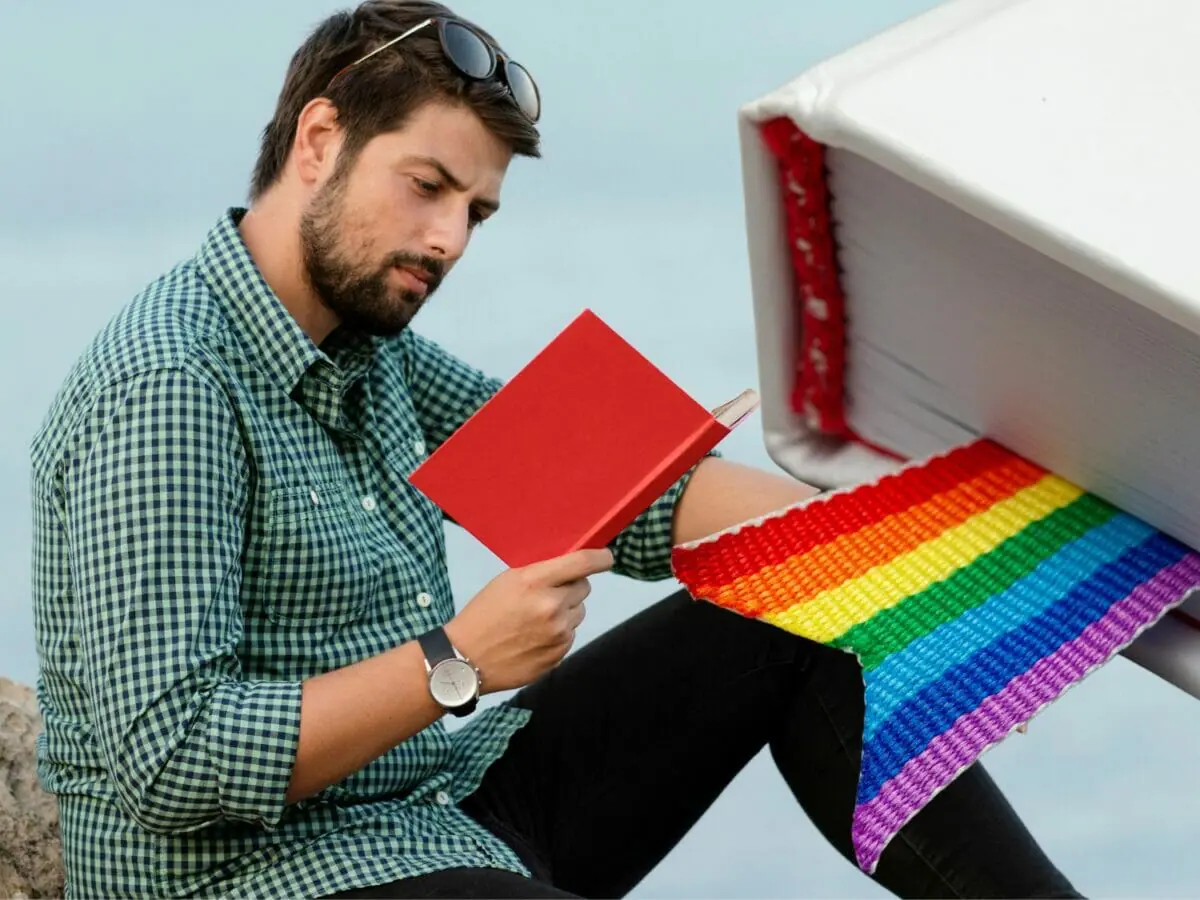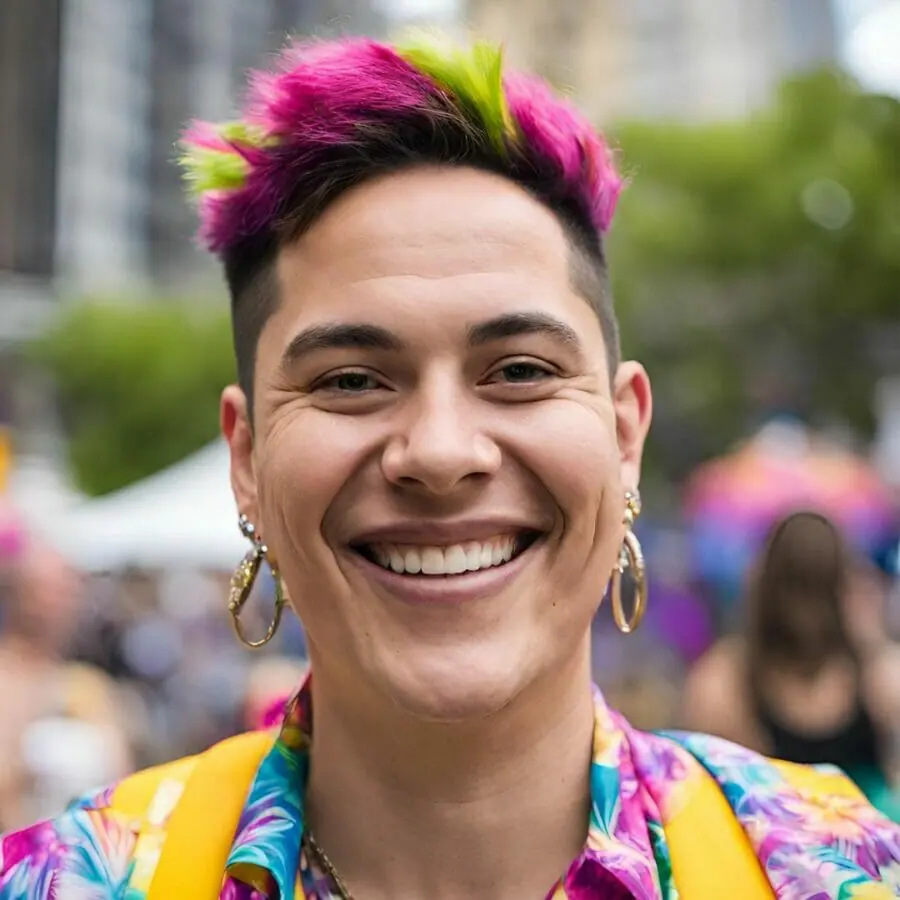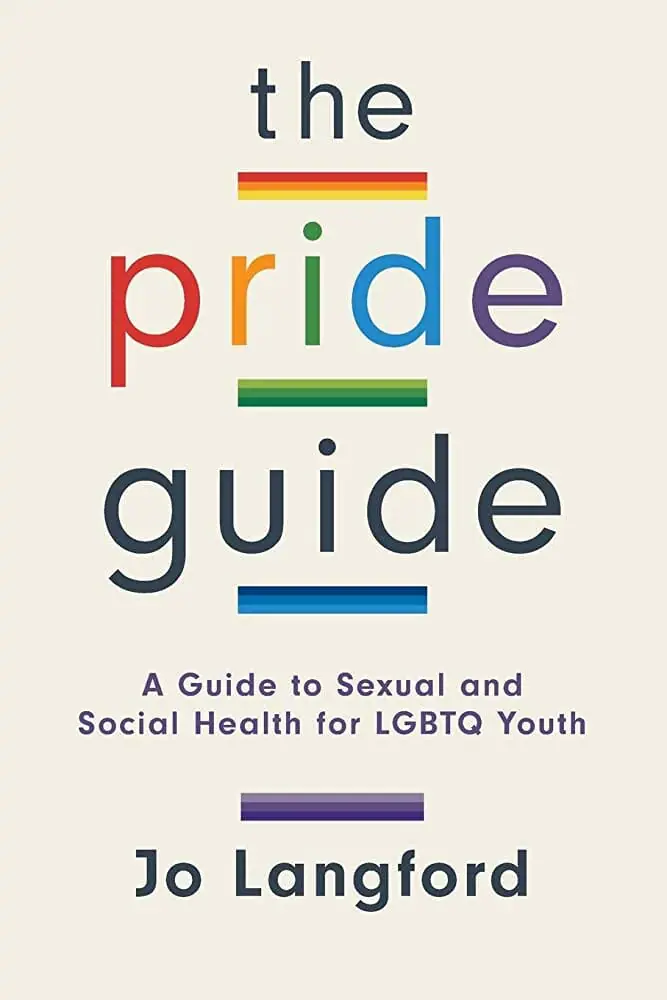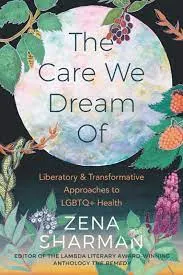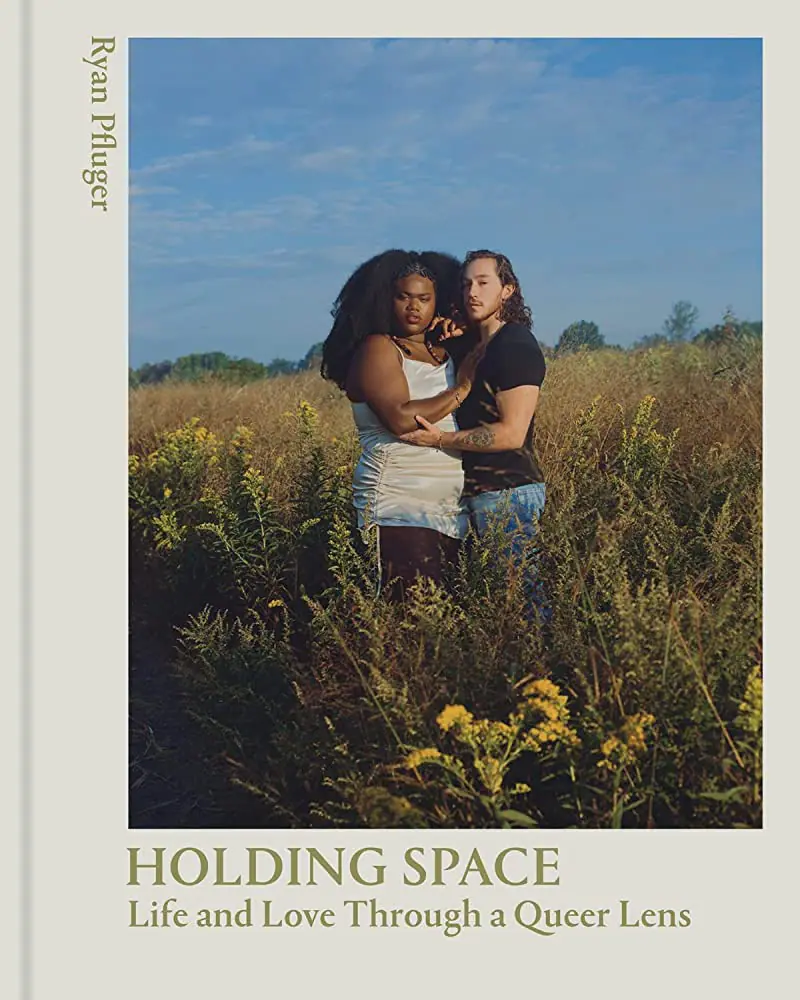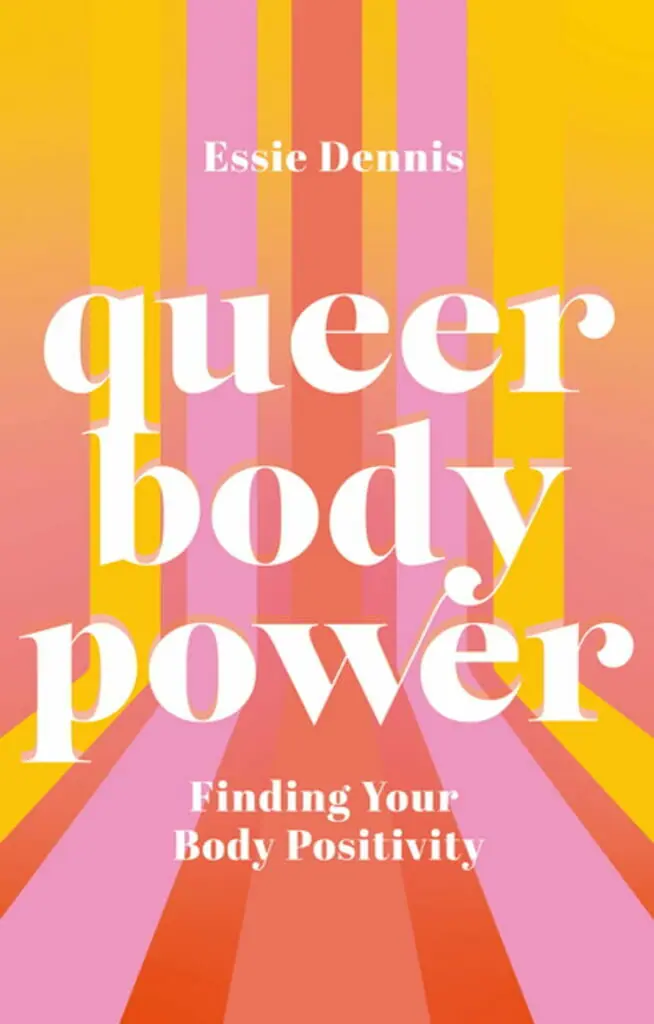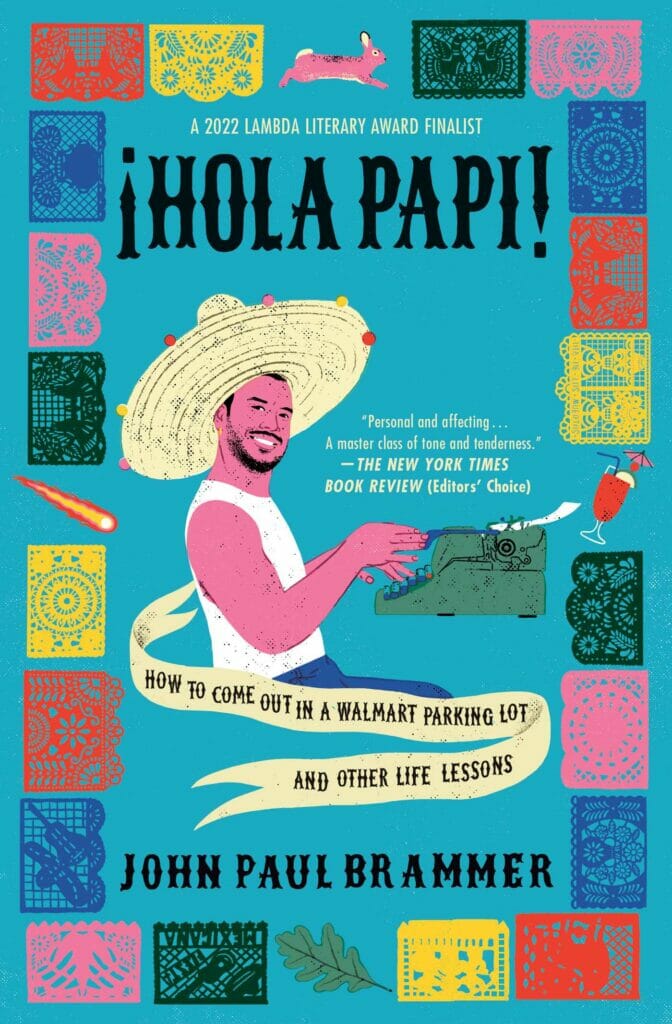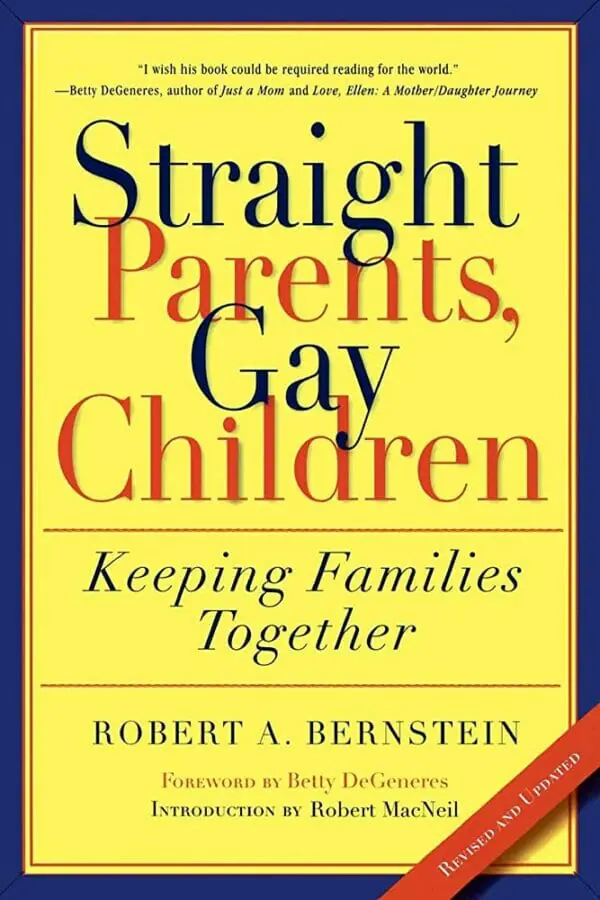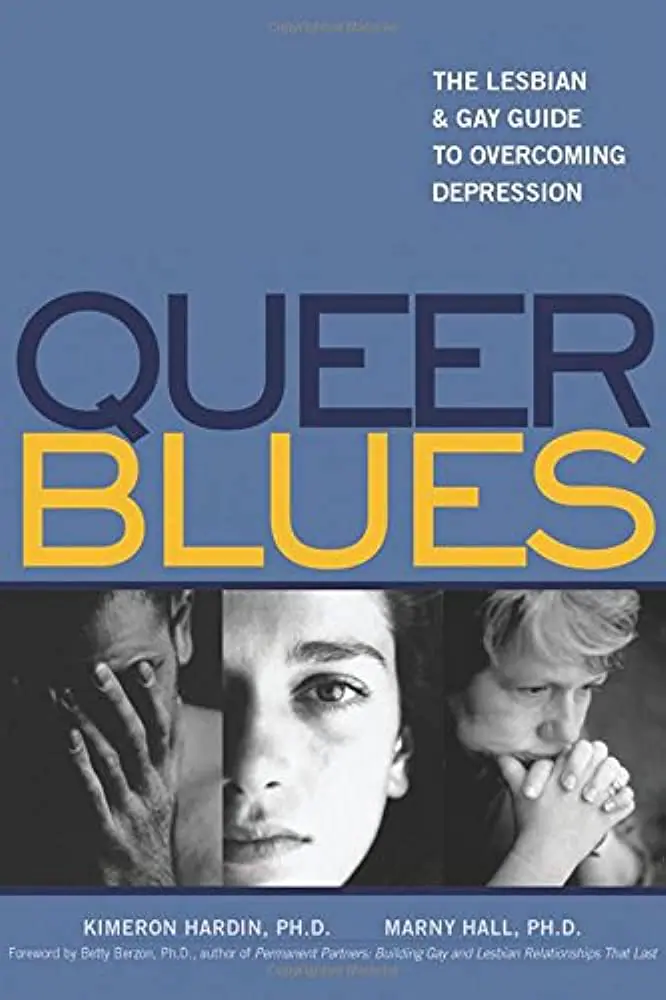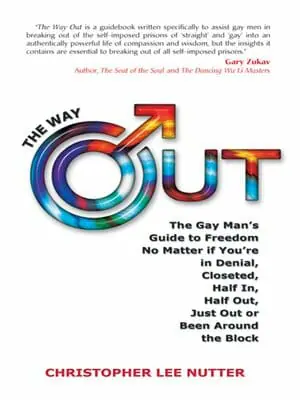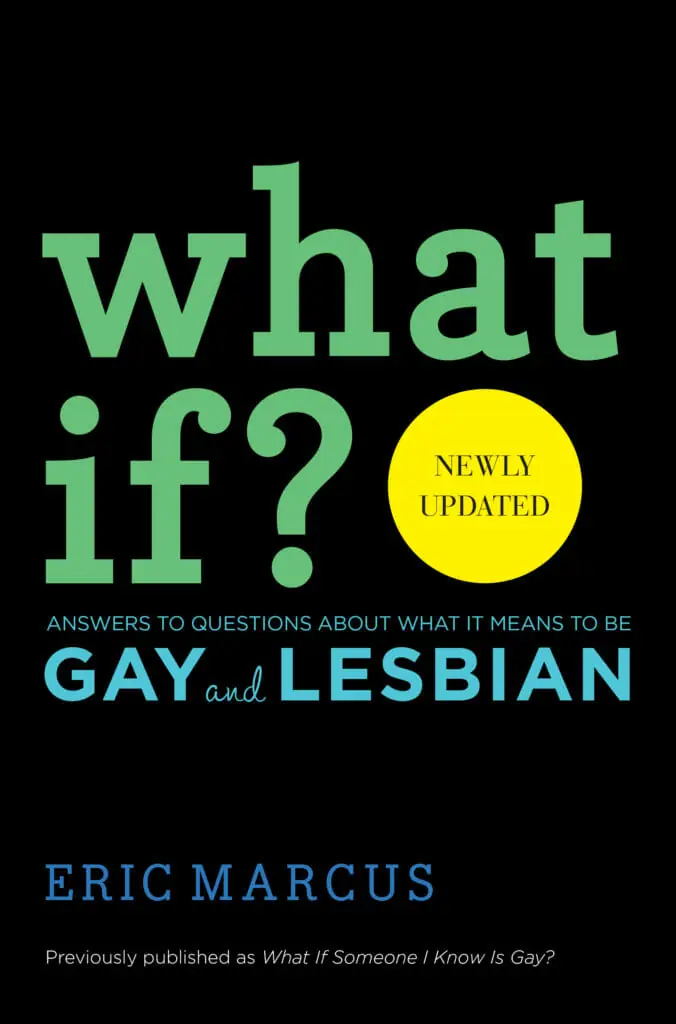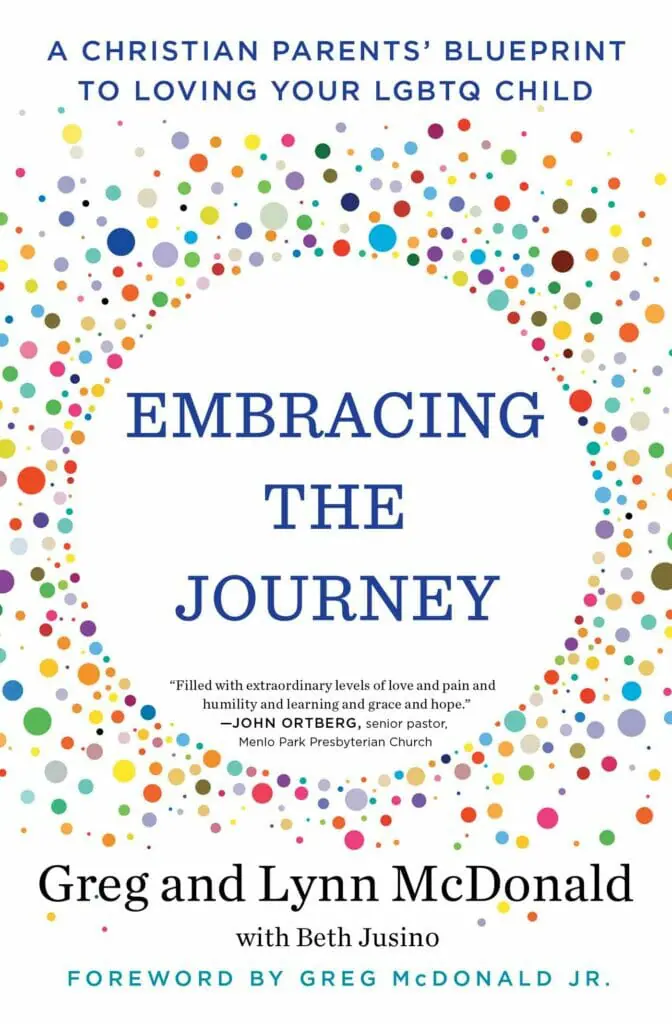We all know the saying. You need to love yourself and the person that you are before you can love others. And, despite the phrase’s somewhat overused nature, it makes sense, right?
After all, if one is too busy doubting themselves and overthinking what other people’s impressions of them must be, they cannot spend as much time truly expressing who they are and making positive connections with their fellow human beings on earth. And this is something the best gay self-help books help us work through.
We are all the same. We all have our issues and shortcomings, but that is just part of the package.
Yet the stress piles on nonetheless. Alas, it is much simpler to nod and appreciate sayings and pieces of good advice than truly absorb them. Sometimes it takes a long, good look at things and slowly making your way through the contextual offerings of a book or someone who has been in the same situation that you have.
Even if one’s life isn’t beset by some complicated, outwardly overwhelming issues, little things and small conflicts throughout normal daily life can still add up to have the same devastating effects that a more dramatic, immediate event can.
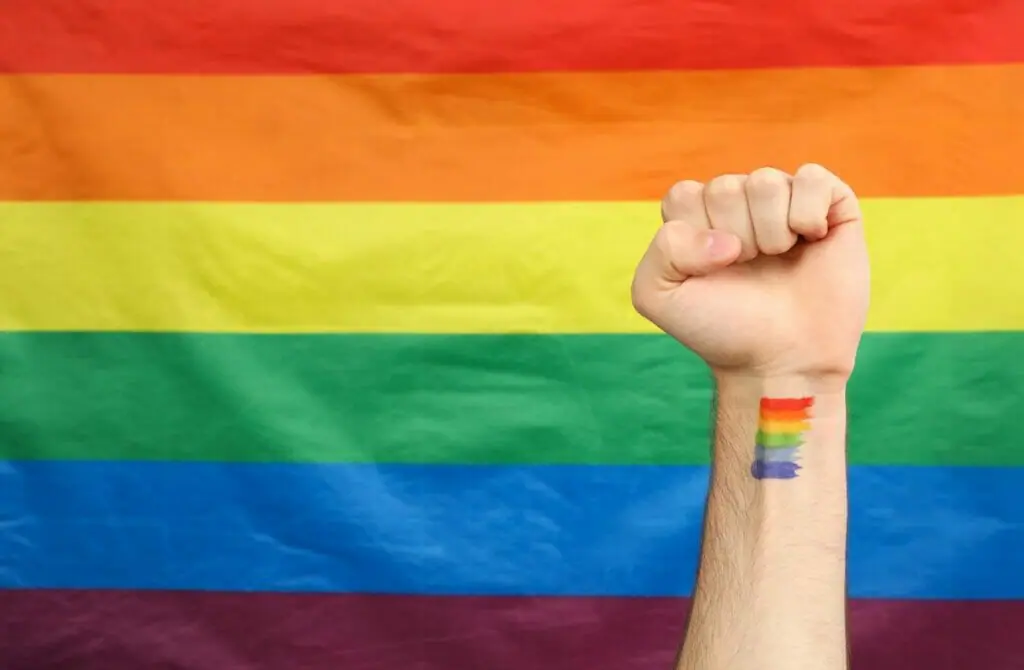
After all, life is still quite difficult for queer people in many parts of the world, and there are sure to be moments of tension and uncomfortable situations even in countries or areas that tend to be more open-minded.
To add even more to this – one doesn’t need to be in any crisis or going through any difficulty whatsoever to benefit from a bit of word-on-paper therapy.
We can all benefit from a bit of retrospect and quiet time thinking about our issues from time to time, whether we consider ourselves to be happy, healthy people yet or not. It’s all a constantly changing process, and no person is locked into a single binary position out of either ‘okay’ or ‘not okay’.
So, with that said, it’s time to open up the mind and get ready to dive into a journey of relief and awareness. You might not be able to make everything around you in your life perfect, but we have tried our best to put together the top ten gay and queer self-help books to make your life just that little bit easier and more pleasant!
Sacred. Sacred. Sacred. Sacred. (Speak
in a whisper.) We slip into this
space half cognizant. The land is very
large indeed: bones of the earth
worn down, though she is a living thing.
See how she exposes her grace? Antelopes
graze on the far plain—their high,
white tails—the red soil throbs
its slow heartbeat, and the blue sky
clears so smartly, perfectly, like
radiance. Are the ancestors near?
What can we know? We decide
to wander around this prairie, mistaken
for Utes, buy commodities in little towns.
From Six Sonnets: Crossing the West by Janice Gould

Don't have time to read them all? Why not try listening to them? Audible is a great platform for listening to audiobooks because it offers a wide selection of books, including bestsellers and exclusive content. With Audible, you can listen to your favorite books on-the-go, whether you're commuting, working out, or doing household chores.
The Audible app also has features like adjustable narration speed, a sleep timer, and the ability to create bookmarks, making it easy to customize your listening experience. Additionally, Audible offers a membership program that gives members access to a certain number of audiobooks per month, making it a cost-effective option for avid listeners.
A great resource for people who want to maximize their time and make the most out of their daily activities. Try a free 30-day trial from Audible today, and you'll get access to a selection of Audible Originals and audiobooks, along with a credit to purchase any title in their premium selection, regardless of price (including many of the books on this list!)
For ebook lovers, we also recommend Scribd, basically the Netflix for Books and the best and most convenient subscription for online reading. While they have a catalog comprising over half a million books including from many bestselling authors, for some of the books on this list, you'll still have to purchase individually - either as a paperback or eBook to load on your Kindle - due to publishing house restrictions.

In this article we will cover...
- The Pride Guide by Jo Langford
- The Care We Dream Of by Zena Sharman
- Holding Space: Life and Love Through a Queer Lens by Ryan Pfluger
- Queer Body Power: Finding Your Body Positivity by Essie Dennis
- ¡Hola Papi! by John Paul Brammer
- Straight Parents/Gay Children: Keeping Families Together by Robert Bernstein
- Queer Blues by Kimeron N. Hardin and Marny Hall
- The Way Out by Chris Nutter
- What If? by Eric Marcus
- Embracing the Journey by Greg McDonald and Lynn McDonald
The Pride Guide by Jo Langford
Providing sexual health education is both a slippery topic and a slippery slope – presenting more than its fair share of tension and problems when it comes to debating amongst educators and parents alike.
As much opposition to the idea as there is, however, it remains undoubtedly true that ignorance is far more dangerous than any claimed ‘over-exposure’, and that there is a grave need for scientific, relatable, and actively present health education in our world today.
With its full title clocking in as The Pride Guide: A Guide to Sexual and Social Health for LGBTQ Youth, this most popular work of Langford’s non-fiction contributions to LGBT literature is everything that a gay, bi, trans, or otherwise queer teenager or young adult could need in making their first steps into the world as a grown human being.
Questions that are infinitely enigmatic and difficult to answer through usual means are laid out open and simple in their pages, and every page leafed through is a step forward to a life of truly living as you want to be.
The Pride Guide’s span is wide, but that is not to say that it doesn’t cover each new topic comprehensively and in a way that makes it easily accessible to people of all identities, genders, and social demographics. Setting in place a lot of crucial building stones to healthy adult life, there’s no question that Langford’s work is inspirational, amazing, and worth a good read!
The Care We Dream Of by Zena Sharman
People grow up learning that one should trust the instinct to seek medical attention if something is wrong with their bodies, but what happens if doctors turn into enemies rather than friends and the health system shuns you due to who you are?
We’ve heard about health education when it comes to being queer, but the ball can’t just stop rolling in the textbooks.
When it comes to receiving health care and other health-related services that work and apply to their needs, queer people rank lowest out of all minority groups and are often left with very few options for getting the help they need. That’s what the ‘dream’, the vision of The Care We Dream Of, is all about.
Comprised of a series of witty, well-compiled essays on the subject of queer health, The Care We Dream Of is a true masterpiece on Sharman’s behalf, as well as on that of the talented writers whose work it encapsulates.
The number of those talented souls includes Alexander McClelland, Zoe Dodd, Blyth Barnow, Carly Boyce, Jaye Simpson, Jillian Christmas, Joshua Wales, Kai Cheng Thom, Leah Lakshmi Piepzna-Samarasinha, and Sand C. Chang.
A perfect read for the health-interested and those that have feelings or have or are going through experiences with health care systems, The Care We Dream of is a projection of sympathy and attentiveness between human beings for the future, motivating improvement with every resource that it can find.
Holding Space: Life and Love Through a Queer Lens by Ryan Pfluger
This one isn’t a book aimed so directly at self-help as the rest of those on this list of the best gay self-help books, but the soothing effect that is flicking through even just a few pages is sure to bring means that it more than deserves to be on this list.
Focused on capturing scenes of unequivocal moments of peace and harmony in a time of great turmoil, Ryan Pfluger spent 2020 and 2021 compiling page after page of heartwarming photos.
These images represent queer life, the dream of being able to express and be ourselves that we all have, and of what it means to have finally found a place to call home. This list can be another person, a place, a culture or a skill – anything.
To put one label on the themes covered by Holding Space would almost be a crime. Like the people whose images it captures and like their colors, identities, and backgrounds, the photos within Holding Space: Life and Love Through a Queer Lens span wide and far throughout queer culture, presenting a therapeutic visual experience that is sure to soften even the most jaded of hearts.
Each image tells a story that is more vivid and loud than the last, and each new set of faces grows a warmth within that reassures and beckons to happiness. Beauty in the world is where we look for it, and no work of queer photography expediates this effect better than Pfluger’s touching compilation here.
Queer Body Power: Finding Your Body Positivity by Essie Dennis
We’ve all had times of being unsatisfied with how we look. It could just be the way our hair came out of bed, it could be our weight, or it could just be genetic features. When it comes to queer people, however, it turns out that these issues and cycles of self-doubt are even more pronounced and prominent than usual.
It makes sense, in a way, after all. None are more likely to put the qualities of their bodies under scrutiny than those interested in looking for positive examples of those attributes in others. That is topped by the fact that even those within the LGBTQ community are responsible for negatively impacting the lives of others.
Ever been told that you ‘don’t look gay’ or that you don’t fit into an archetype that people expect queer people to hold?
Essie Dennis understands what it’s like to feel that way about yourself and to lack confidence in day-to-day situations. It’s often one thing or another. Not thin enough, too thin, too this, or to that. But how too look past the superficiality of it all and appreciate the undeniable – that you will always be yourself no matter what others say and convince you to feel?
No matter what body shape you have, Queer Body Power is a massive step down the path of feeling better about yourself and loving your body for all queer people, whether you think you’re happy with how you look or not.
¡Hola Papi! by John Paul Brammer
This book’s full title is ‘¡Hola Papi!: How to Come Out in a Walmart Parking Lot and Other Life Lessons’, and the fun quirkiness doesn’t stop there. Brammer’s memoir slash autobiography slash instant self-help classic is a light-hearted yet brave take on queer life as a whole, acting as somewhat of a cheat guide to gay life.
Mixed race, gay, and not at all certain where he wanted to go with his life, while Brammer’s journey of transforming into ‘Papi’ – author of the popular advice column that shares the book’s name and an icon for queer youths all across the world – had humble origins, when it got started, it got started with a bang.
But he didn’t get where he is today without going through some tough struggles and finding the answers to some pretty difficult questions – questions that Brammer explores gleefully and in great depth in this well-written and heart-touching memoir.
Fueled with a wide range of intensely personal experiences that will keep you well engaged and on the edge of your seat in a narrative sense, ¡Hola Papi! Breaks into the heart of every queer person it touches and comes to stay.
Its writing structure is refreshingly unique, phrased and put together as though the book is a series of ‘problem response’ columns, just as its author is famous for. Take a look – maybe the thing you’ve been battling with is only a Walmart parking lot away from being solved!
Straight Parents/Gay Children: Keeping Families Together by Robert Bernstein
While this book isn’t strictly just about self-help for queer individuals – though it can be an enlightening, therapeutic, and freeing read for those who have had to experience the difficulties of living with homophobic or transphobic parents – it must be said that ensuring a healthy family relationship is a massive step towards positive experiences later in life and that some of the most prominent issues of all that queer people encounter can be found right in the childhood home.
Written not by a queer individual but rather from the perspective of a heterosexual father with a lesbian daughter, Bernstein’s work in Straight Parents/Gay Children is nothing short of inspirational – showing how a thing reacted to as ‘needing getting used to’ or ‘getting over’ is instead a gift and an opportunity for parents to show how much they truly love and accept their children.
After all, if a child has the courage and trust to openly come out to their parents with something so sensitive and direct from their heart, that says a lot of good things about the relationship between the two parties.
Bernstein sees parents as irreplaceable bastions of support for gay rights. As he goes on to discuss, the challenges faced by queer people, especially youths, are already insurmountable, and thus, adding a parent’s disapproval to the mix will do nothing but make things much harder overall. This book is a must-read for both children and parents. Strengthen that bond, and don’t ever let go!
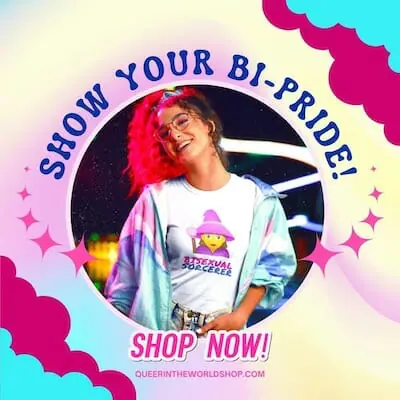
Queer Blues by Kimeron N. Hardin and Marny Hall
People may say and do hurtful things, and the world may not always be a kind place to live in – especially as a queer person – but these things are not reasons to allow yourself to feel inadequate or brought down.
Queer Blues: The Lesbian and Gay Guide to Overcoming Depression is one of the only pieces of queer literature out there that focuses especially on the effects and sources of depression that gay people suffer from on a day-to-day basis and the job it does of covering crucial and til now unexplored topics is nothing short of legendary.
Backed up with more than twenty-five years of collective experience in medicine and therapy, Queer Blues knows what it is doing, and its words come to stay in the heads of readers. Hardin and Hall don’t just overview the subject and offer a dry analysis, however.
Their collaborative writing and experienced compiling offer a real pathway to self-improvement and seeking to understand and rectify the sources of problems rather than attribute them as inevitable and leave them be.
Kimeron was a director of psychology for the UCSG / Mt. Zion Pain Management Center, as well as an assistant clinical professor in the Departments of Anesthesia and Psychiatry at the University of California, while Marny Hall spent 25 years before writing this book as a lesbian therapist and self-help writer for queer audiences.
Together, they form a well-educated and heartfelt team that is well-dedicated to supporting the book’s readers.
The Way Out by Chris Nutter
Being in the closet metaphorically can feel just as suffocating and claustrophobic as being in a literal closet a lot of the time. One has to hide the person they are from family, loved ones, and sometimes even significant others, and the longer that the façade goes on, the harder it is to finally do away with it.
But how to break free before even more pain ensues and things grow yet harder? How to rip off the band-aid and the possible alienation that comes with being honest with those around you? What is – in Nutter’s opinion – The Way Out?
Powered strongly from the beginning til the end by a lifetime of personal experience and knowledge from other queer people, Christopher Nutter takes his readers on a journey of self-acceptance unlike any other.
The book is down to earth while remaining highly respectful and relevant, knocking over difficult subjects with great ease without belittling the great emotional work and process that comes with coming out, as well as the greatly differing natures of individual people’s circumstances.
If you’ve been struggling with the hurdle of coming out, or if you’ve already come out and are stuck wondering if there was something you did wrong and if things would have been easier if you had taken things in another direction in doing so, then this is the book for you. It’s time to start living for the truth that made you want to come out in the first place.
What If? by Eric Marcus
As all queer people come to find out sooner than they even truly question themselves and their sexuality, there is very little widely available information on what it means to be queer.
Books and movies on the subject are incredibly niche in most cases, and this means that those just beginning down a path of self-realization often have a harder time realizing that what they’re feeling is something other people share with them than actually identifying that they are indeed feeling something.
Updated in 2013 for new audiences, new times, and a new state of LGBT representation and rights, Marcus’s definitive guide to all of the ‘what if’ and ‘how do I’ questions that come with being queer is the handbook that we all wish we had when first coming out or discovering what being queer meant to us.
With What If, there is no confusion, timid Google searches, or false assumptions. The information is there, and the reassurance, too – all presented in the form of responses to questions asked by real queer teens.
The unique, engaging format of writing makes What If a pleasurable read even if you’re long beyond the stage of asking new questions about sexuality and the LGBTQ community, and the book is also a definite recommendation to straight allies who are looking for an open door into understanding what it means to be queer or to clear up any myths that they may have been told.
Embracing the Journey by Greg McDonald and Lynn McDonald
And now, to end this list of the best gay self-help books, let us dip once more into the quite difficult realm of discussion that is the relationships shared between queer children – grown and still growing – and their parents.
This time, however, Embracing the Journey takes the reins on wedging a slot of peace between the queer community and the judgment often passed upon it by Christian communities, all while attempting to balance religious values with the treasured unit that is a family.
As is true with many works that capture the contrast and friction between progressive matters and religious topics, one can very easily still find factors of Embracing the Journey that could use improvement from a fully, entirely inclusive standpoint, but it remains true that the book attempts negotiating the impossible to negotiate that is nothing short of amazingly impressive.
A baseline of acceptance and love is the creed of Mcdonald’s, and those are the words they insist are the only ones Christians and every human being, in general, should have in mind when it comes to queer people.
Together Greg and Lynn work to defuse the ticking time bomb that many families with queer children find themselves transforming into and soothe even the harshest kneejerk reactions to what is once more an undeniably impressive degree.
None of us is perfect, but one thing is true: love and acceptance are the surest paths to peace and happiness for all of us, and it’s about time we got going.


